Beyond Pickles: Discover Vinegar’s Most Unexpected and Useful Hacks!
An Egg-cellent Hack for Perfect Boiled Eggs
Boiling eggs might seem easy, but getting easy-to-peel eggs can be tricky. Adding a tablespoon of vinegar to the boiling water helps the egg whites firm up, making the shells easier to remove. The acetic acid in vinegar breaks down some of the calcium carbonate in the eggshell.
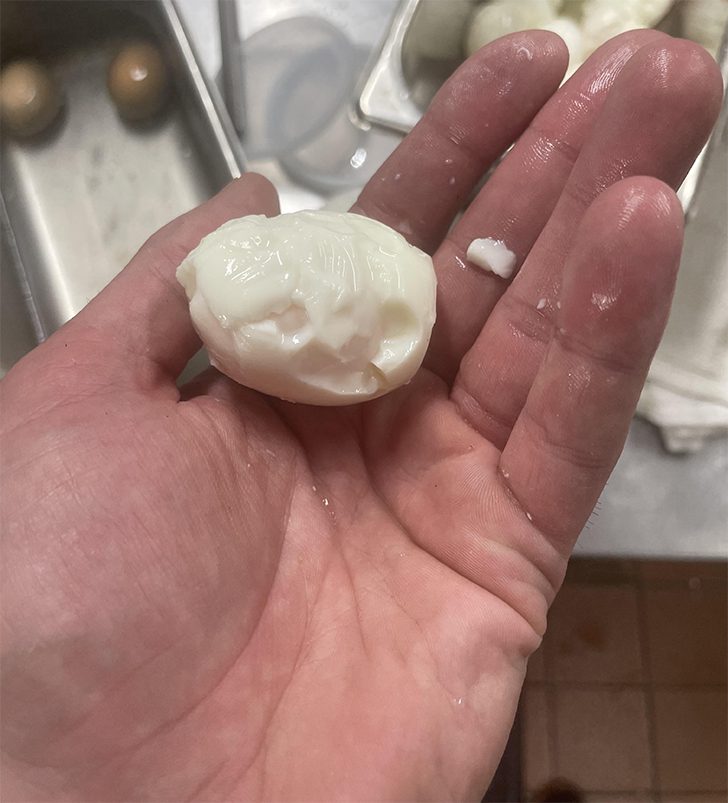
Add a tablespoon of white vinegar to the water. Bring the water to a boil, then reduce the heat and let the eggs simmer for 9-12 minutes, depending on your desired doneness. Transfer the eggs to an ice bath immediately after boiling to cool them quickly.
Vanishing the Lint
Preventing lint build-up in your laundry is easy with vinegar. Just add half a cup of vinegar to the rinse cycle. This reduces static, making lint and pet hair less likely to stick to your clothes.
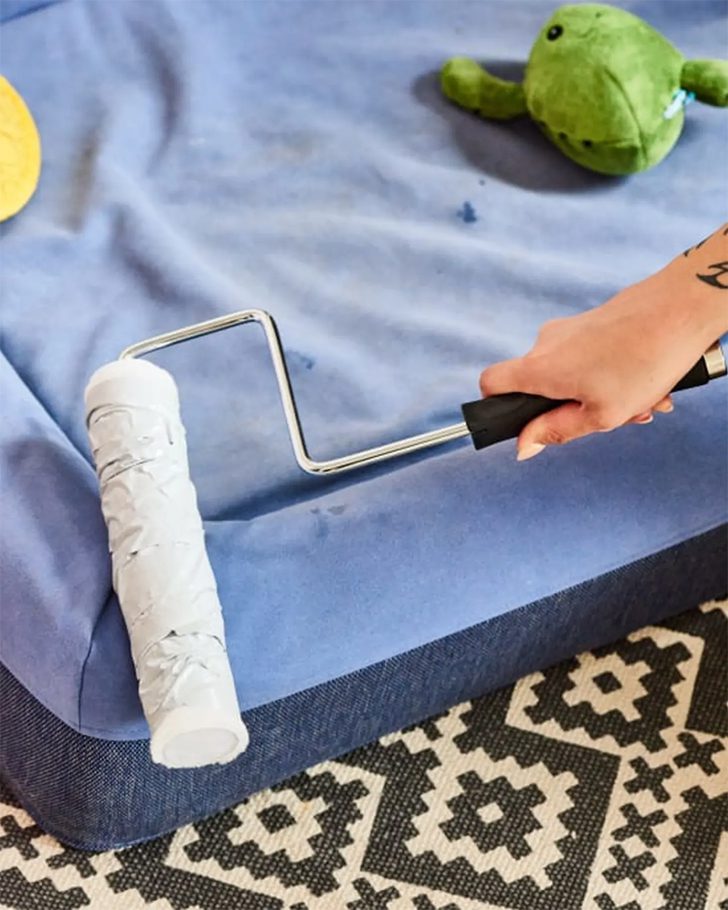
The science behind this is simple: vinegar helps to break down detergent residue and balances the pH level of the water. This reduces static electricity, which is the main culprit in attracting lint and hair. So, next time you do laundry, try this vinegar trick for cleaner, fresher clothes.
Ant-astic Solution: Vinegar to the Rescue
Keep ants out of your kitchen with vinegar! Simply spray a solution of equal parts vinegar and water along ant trails and entry points. The strong smell of vinegar repels ants, disrupting their scent trails and making it difficult for them to navigate.
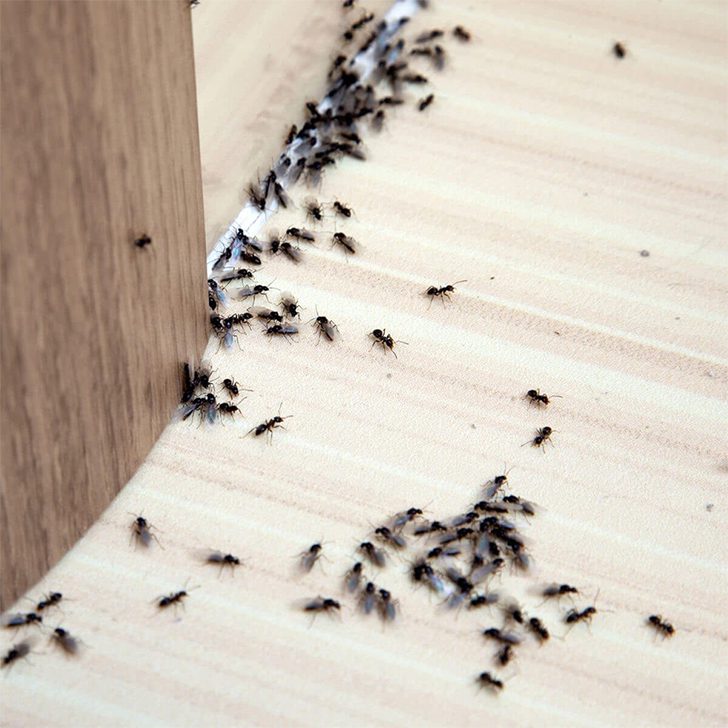
Vinegar’s potent odor comes from acetic acid, which is what makes it effective against ants. This hack really works because ants rely heavily on their sense of smell to find food and communicate. By masking their trails with vinegar, you can effectively keep them at bay.
Disinfecting A Toothbrush
We often overlook cleaning our toothbrushes, but they can harbor a lot of bacteria. Vinegar can effectively disinfect your toothbrush. Combine 1/2 cup of water, 2 tablespoons of vinegar, and 1/2 teaspoon of baking soda in a bowl. Soak your toothbrush in this mixture for 30 minutes.
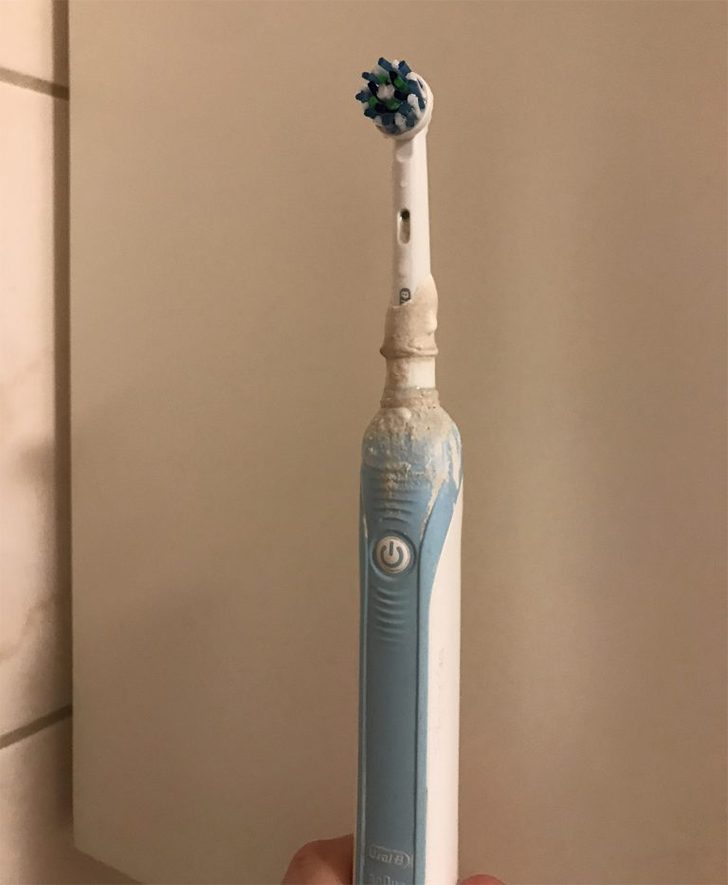
The acetic acid in vinegar kills bacteria, while baking soda adds an extra cleaning boost. If you can, do this weekly to ensure your toothbrush stays clean and your oral hygiene is top-notch. It’s a simple routine that makes a big difference.
Vinegar for Blooms: Fresh Flowers That Last
Yes, distilled vinegar can help your flowers stay fresh longer. To keep your bouquet vibrant, combine two tablespoons of white vinegar and one teaspoon of sugar in four cups of water. This simple mixture extends the life of your flowers by several days.
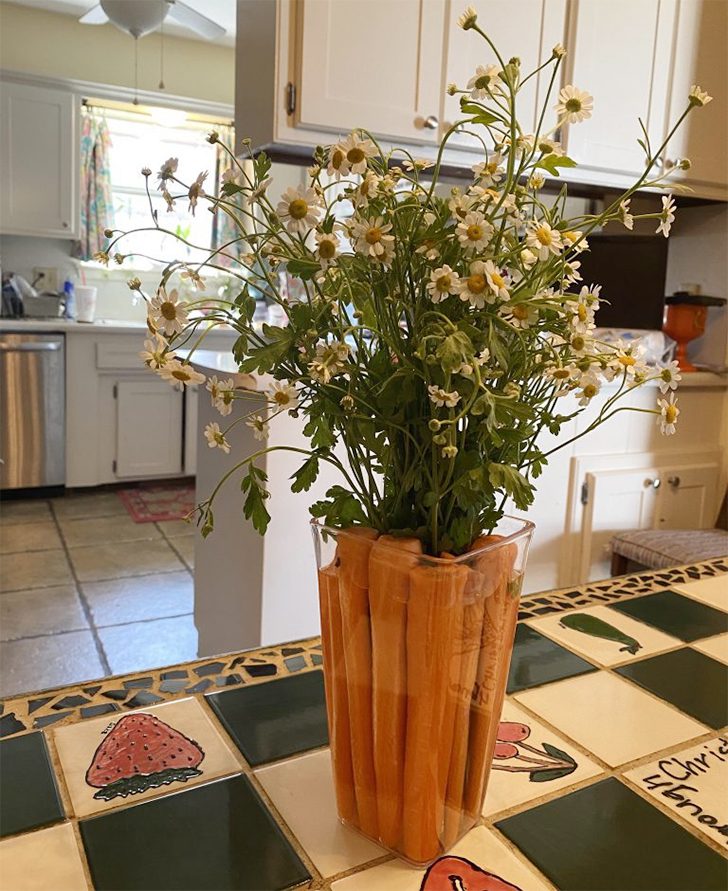
The vinegar helps by reducing the growth of bacteria in the water, while the sugar provides essential nutrients for the flowers. This combination creates a healthier environment for your flowers, allowing them to stay beautiful and fresh longer than when they’re just in regular water.
No Buttermilk? No Problem with Vinegar!
You’re in the middle of a recipe and realize you’re out of buttermilk. Don’t worry, vinegar has got you covered. Buttermilk’s tangy flavor and acidity can be easily replicated. Just dissolve a tablespoon of vinegar in a cup of milk and let it sit for a few minutes until it curdles slightly.
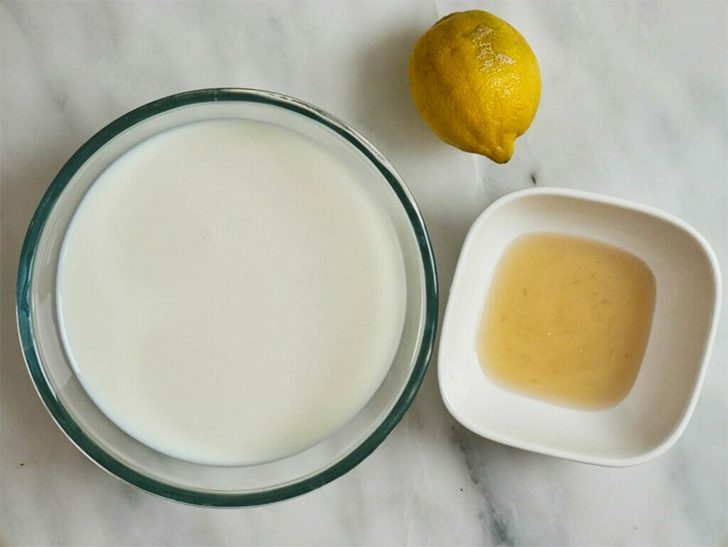
Then, give the mixture a quick stir, and voilà! You’ve got a perfect buttermilk substitute. This hack saves you a last-minute trip to the store and ensures your recipe gets the tangy aroma and acidity it needs.
Prime Time: Prepping Walls with Vinegar
You will notice that all paint products indicate they should be applied to a clean surface. Vinegar is a fantastic solution for prepping walls before painting. Mix equal parts white vinegar and water, then wipe down your walls with this solution. The acetic acid in vinegar effectively removes dirt, grease, and grime without leaving a residue.
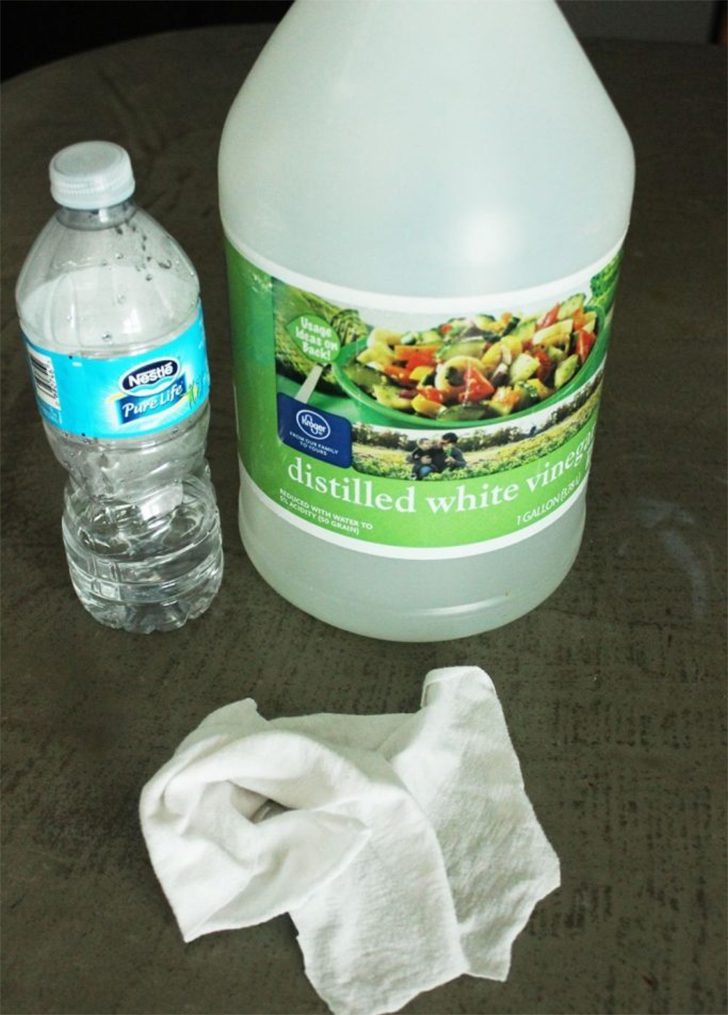
This cleaning process ensures that the paint adheres better to the wall, providing a smooth and long-lasting finish. Using vinegar to prep your walls guarantees a clean, residue-free surface, allowing your paint job to look its best and last longer.
Wax Off with Vinegar
Removing wax can be tricky, but vinegar makes it easy. First, apply hot air to the wax using a hair dryer to soften it. Then, combine vinegar and water in equal parts. Soak some paper towels in this solution and use them to wipe away the softened wax.
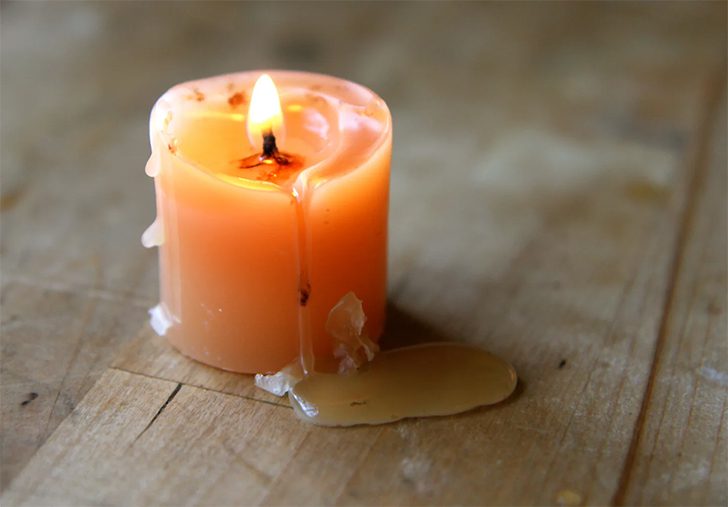
The acetic acid in vinegar helps break down the wax, making it easier to clean. This method is efficient and simple, ensuring you can quickly and effectively remove wax without harsh chemicals. Say goodbye to stubborn wax with this handy vinegar hack!
Spotless Glasses Hack
Most people who wear glasses clean them by exhaling on them and wiping the fog off with their shirts. For a better solution, mix one part water and three parts distilled white vinegar in a spray bottle. Spray it on your lenses and then dry them with a clean cotton cloth.
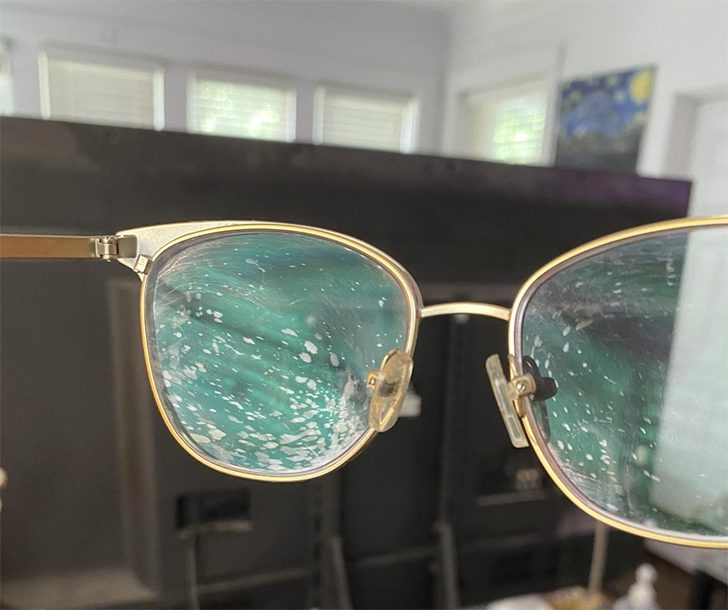
The acetic acid in vinegar cuts through dirt, grime, and oils, ensuring your lenses are spotless. This method also reduces minor scratches, providing clearer vision. Say goodbye to smudged lenses and hello to crystal-clear clarity with this vinegar cleaning hack!
Smooth Moves Wrinkle-Free Clothes
Need to remove wrinkles from clothes without an iron? Vinegar can help. Mix one part vinegar with three parts water in a spray bottle. Lightly spray the wrinkled areas of your clothes and then let them air dry. The acetic acid in vinegar helps to relax the fibers in the fabric, reducing wrinkles.
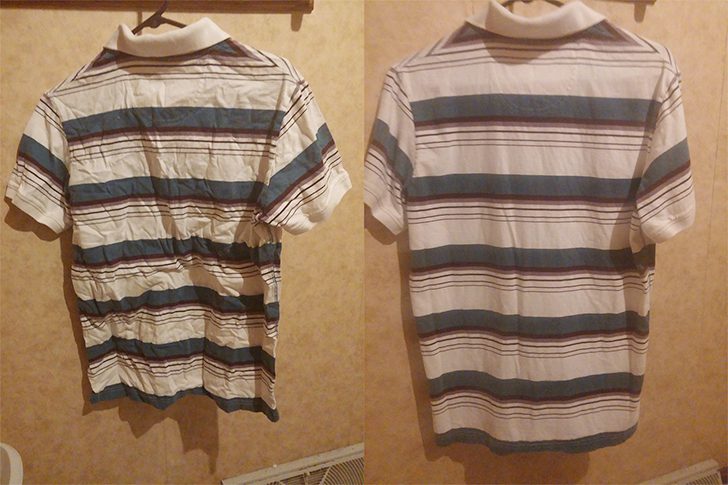
This simple trick can save you time and keep your clothes looking fresh without the hassle of ironing. Next time you’re in a pinch, try this vinegar hack for wrinkle-free, smooth clothes.
Bubble Trouble: Unclog Your Sink with Vinegar and Baking Soda
Unclogging a sink with vinegar and baking soda is simple and effective. Start by letting a cup of baking soda sit in the drain for a few minutes. Then, pour a cup of vinegar. This mixture creates a bubbling reaction that disintegrates the blockage.
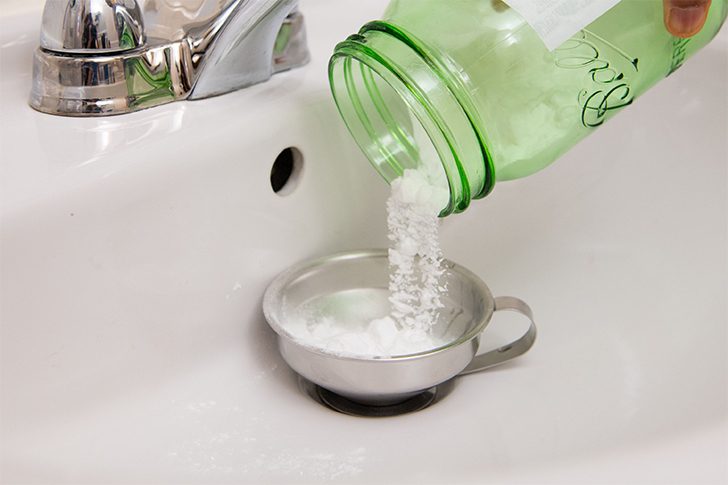
Once the foam subsides, turn on the faucet to flush the drain. The reaction between the acetic acid in vinegar and the alkaline baking soda breaks down the clog, clearing your sink efficiently. This natural method is a great alternative to harsh chemical cleaners.
Garden Guardians Away!
Rabbits are drawn to gardens because they provide a plentiful source of fresh vegetables and plants. Unfortunately, these cute critters can wreak havoc, nibbling on your hard-earned greens. To shoo them away, use vinegar. Soak cotton balls in vinegar and place them around your garden.
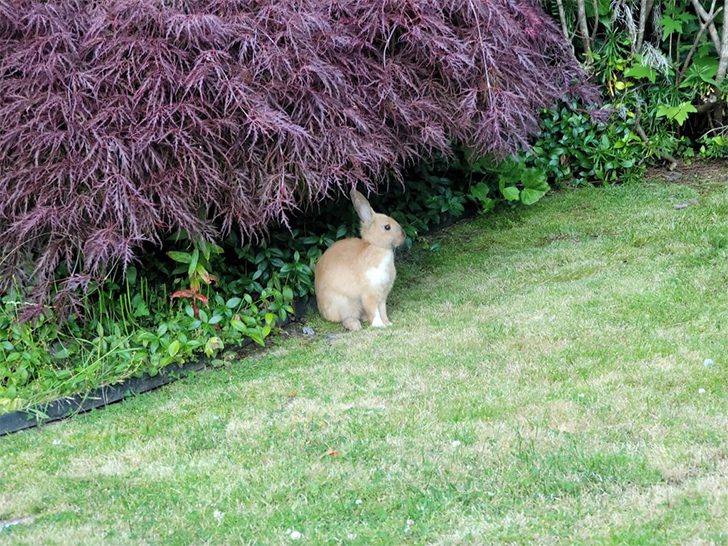
The strong acetic acid smell is unpleasant to rabbits, deterring them from entering. This natural repellent is effective because rabbits have sensitive noses and find the vinegar odor overwhelming. Using this simple vinegar trick helps protect your garden from these furry invaders without harming them.
Cleaning Birdbath Is Easy Peasy
Birdbaths provide birds with a place to drink, bathe, and cool off, essential for their health and hydration. Keeping bird baths clean is crucial to prevent the spread of diseases among birds. To clean a birdbath, empty the water and scrub the basin with a solution of one part vinegar to four parts water.
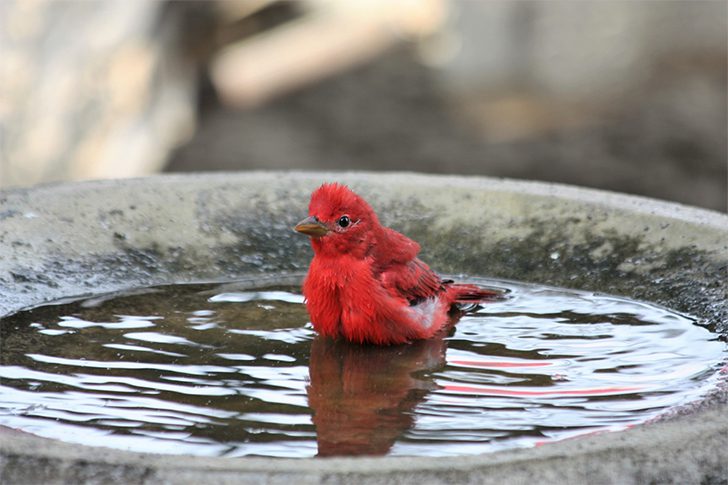
The acetic acid in vinegar effectively removes dirt, algae, and bacteria. Rinse thoroughly with clean water and refill the birdbath. Regular cleaning with vinegar ensures a safe and inviting space for birds, promoting a healthy and vibrant garden ecosystem.
Whitening Teeth with Vinegar
Yes, vinegar can help whiten teeth. The acetic acid in vinegar removes stains and kills bacteria, promoting a brighter smile. To use this method, mix one part apple cider vinegar with two parts water. Swish the solution in your mouth for about a minute, then spit it out.
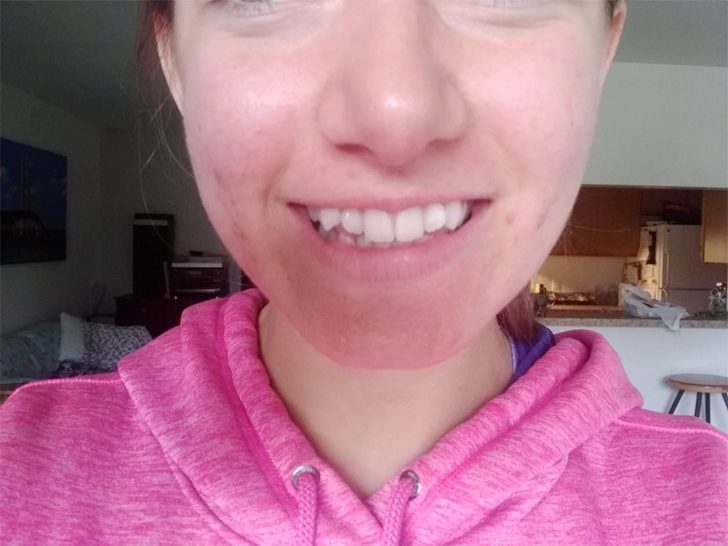
Rinse thoroughly with water to remove any residual vinegar. Do this once a week to avoid enamel erosion. This simple routine can help reduce stains and improve your dental hygiene naturally. Always consult your dentist before trying new oral care methods.
Soothe Your Throat
Using vinegar as a remedy for a sore throat is simple and effective. The acetic acid in vinegar has antibacterial properties that can help soothe throat pain. To make this remedy, mix one tablespoon of apple cider vinegar with a cup of warm water.
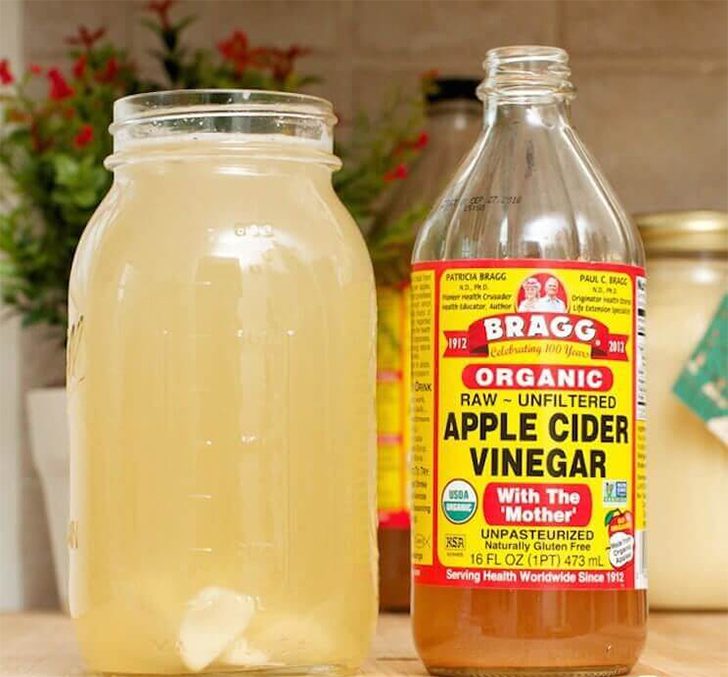
Optionally, add a teaspoon of honey for extra soothing and antibacterial benefits. Gargle with this mixture for about 30 seconds, then spit it out. Repeat a few times a day as needed. This natural remedy can help alleviate throat discomfort and fight off infection.
No Cats Please
Vinegar can act as a natural cat deterrent. These creatures dislike the strong smell of vinegar, which helps keep them away from areas you want to protect. The acetic acid component produces a scent that is unpleasant to cats but harmless.

To use this method, mix equal parts white vinegar and water in a spray bottle. Spray the solution on areas where you want to deter cats, such as garden beds, furniture, or doorways. Reapply as needed to maintain the scent. This simple trick helps keep your spaces cat-free without using harmful chemicals.
Goodbye Dirty Cutting Board
Vinegar can effectively clean a wooden chopping board. Wooden cutting boards can harbor bacteria, food particles, and odors, making daily cleaning a smart choice. To clean your board, wipe it down with a cloth soaked in undiluted white vinegar. The acetic acid in vinegar disinfects and removes lingering smells.
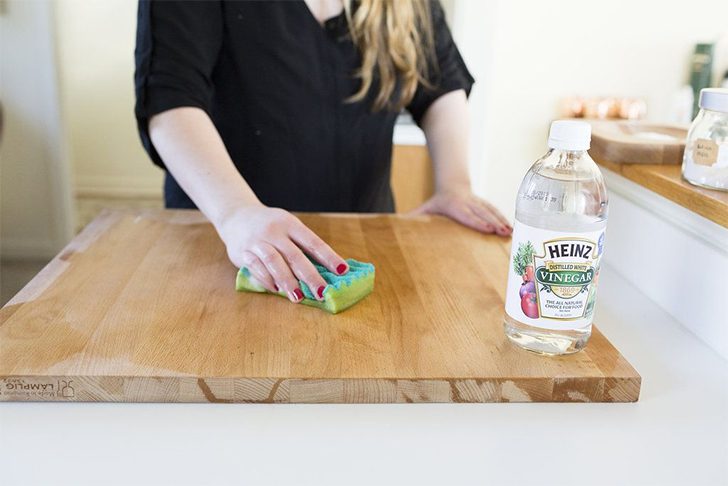
For deeper cleaning, sprinkle the board with coarse salt before wiping with vinegar. This routine helps maintain a hygienic surface for food preparation. Regular cleaning with vinegar keeps your cutting board in top shape, ensuring safe and fresh food handling.
Secret to An Egg-cellent Easter
Vinegar is key to vibrant Easter egg colors. To do this, start by hard-boiling the eggs and letting them cool. In separate cups, mix half a cup of boiling water, one teaspoon of white vinegar, and food coloring drops until you get the desired shade.
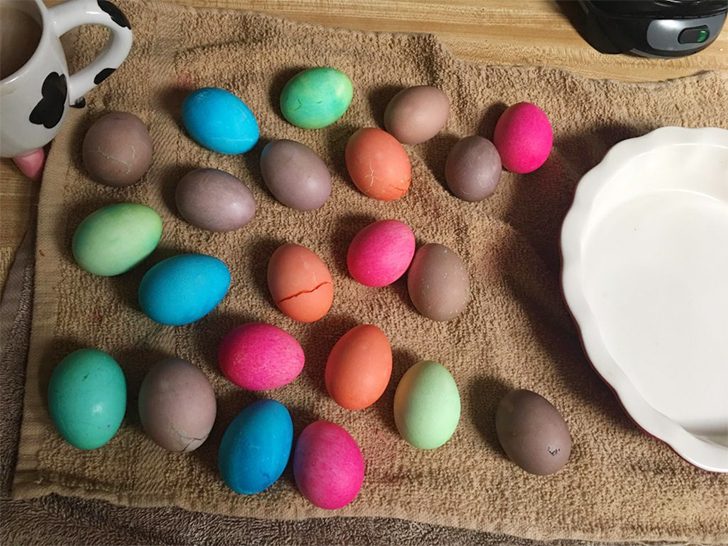
The acetic acid in vinegar helps the dye bond better with the eggshell, creating more intense colors. Dip the eggs in the dye mixture, leaving them submerged for a few minutes. The longer you leave them, the deeper the color. Once dyed, let the eggs dry on a paper towel.
Affordable All Purpose Cleaner
You can make your own inexpensive cleaning products with vinegar, as it is a fantastic all-natural cleaner. All-purpose white vinegar cleaner doesn’t just save a lot of money; it is also ecological.
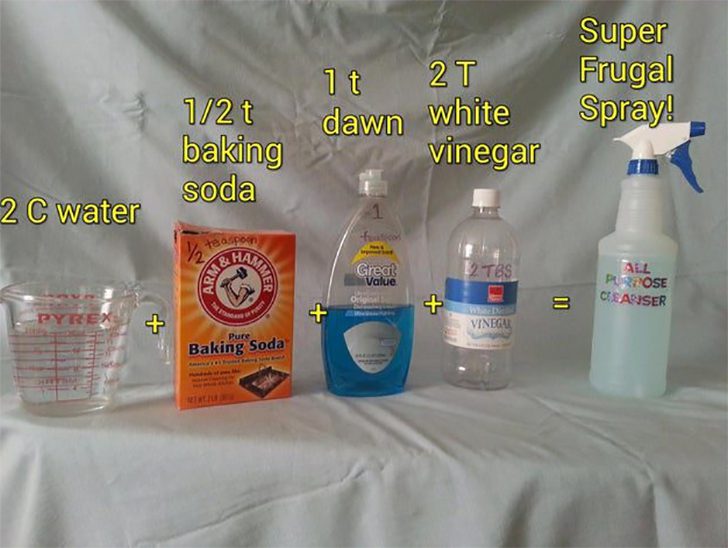
To do this, fill a bottle with water, vinegar, and some dishwashing liquid to make the cleaning spray. Your all-purpose cleaner is ready to use! The science behind this cleaner is simple: vinegar’s acetic acid breaks down grime and kills bacteria, while the dishwashing liquid cuts through grease.
Freshen Up Your Coffee Maker
Vinegar is perfect for cleaning your coffee maker. Start by filling the reservoir with a mix of half white vinegar and half water. Begin the brew cycle and let it run until halfway, then pause and let the solution sit for about an hour. This helps dissolve any mineral buildup inside.
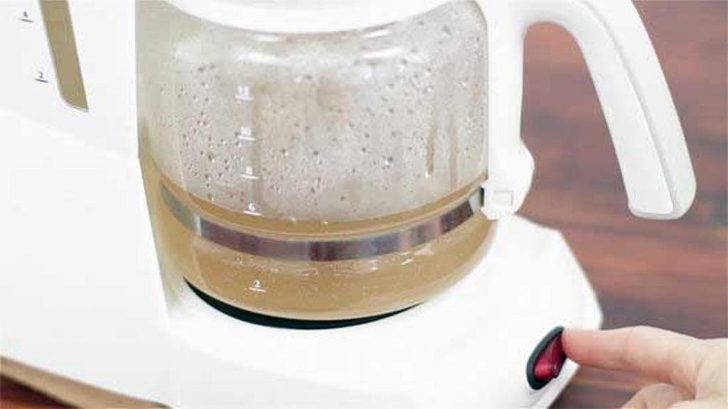
After the hour, complete the cycle. Finally, run two or three cycles with clean water to rinse away any vinegar residue. This simple process ensures your coffee maker stays clean, providing better-tasting coffee and prolonging the machine’s life.
Flake-Free Fix: Vinegar for Dandruff
Dandruff is caused by an overgrowth of a yeast-like fungus called Malassezia, which leads to flaking and itching. Yes, vinegar can help with this issue. The acetic acid in vinegar has antifungal properties that combat Malassezia, reducing dandruff. To use vinegar, mix equal parts apple cider vinegar and water.
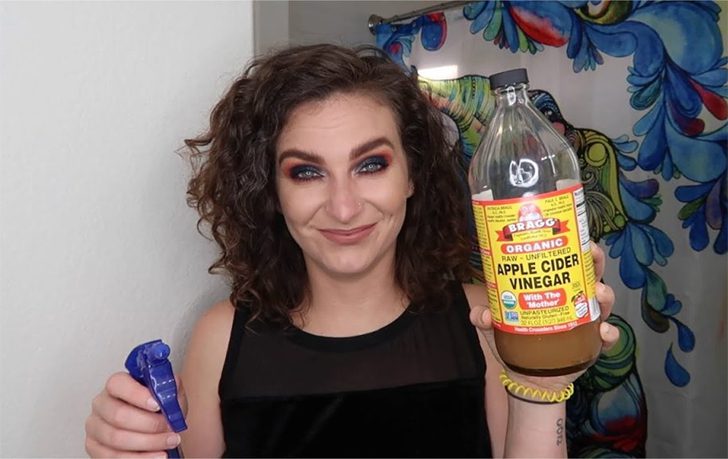
Apply this mixture to your scalp, let it sit for 15 minutes, then rinse thoroughly. Regular use can help balance the scalp’s pH and reduce flaking. Addressing dandruff involves maintaining a healthy scalp environment, and vinegar is a natural, effective solution to consider.
Reviving Wilted Veggies with Vinegar
This miracle liquid can also do wonders for wilted vegetables. If not stored correctly, vegetables can wilt or turn brown in just a few days. To restore them, combine two cups of cold water with one tablespoon of white vinegar.
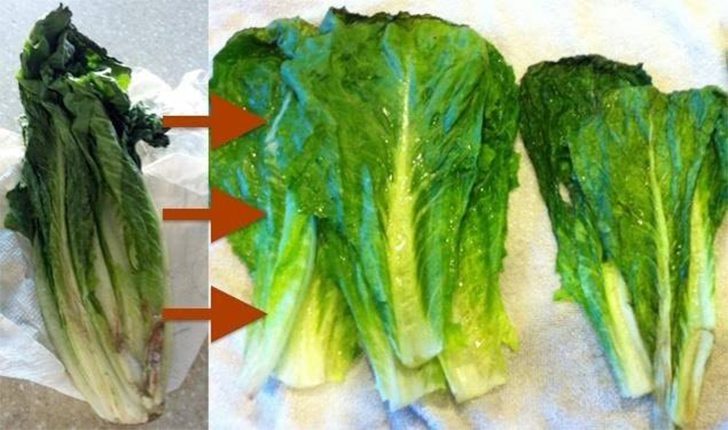
Soak the wilted vegetables in this mixture for about 15 minutes. The acetic acid in vinegar helps to rehydrate and firm up the veggies. This simple technique quickly revitalizes your vegetables, making them crisp and fresh for your next meal.
Dirty Blinds Be Gone
Dirty, dusty blinds can be embarrassing and make your home look unkempt. Cleaning blinds is challenging, but vinegar makes it easier. Mix equal parts white vinegar and water in a spray bottle. Spray the solution onto a clean cloth or an old sock, and then wipe each slat individually.
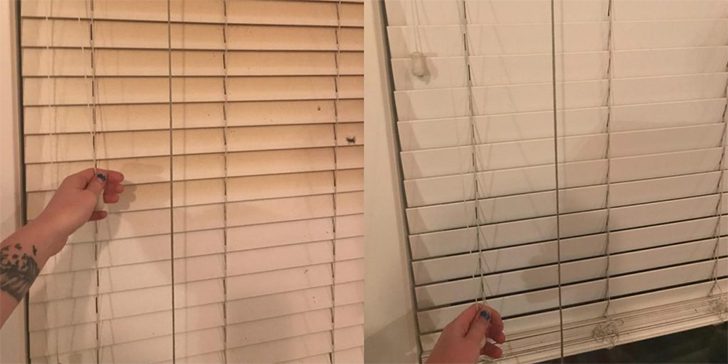
The acetic acid in vinegar cuts through grime and dust, leaving your blinds spotless. This simple vinegar solution works wonders, making your blinds look fresh and clean without much hassle. Keep your home looking tidy and welcoming with this easy cleaning hack.
Vinegar and Bread to Eliminate Odors
Trash bins smell bad due to decaying organic matter and bacteria. Vinegar and bread can be a solution. Soak a slice of bread in white vinegar and place it at the bottom of the empty trash bin. Let it sit overnight.
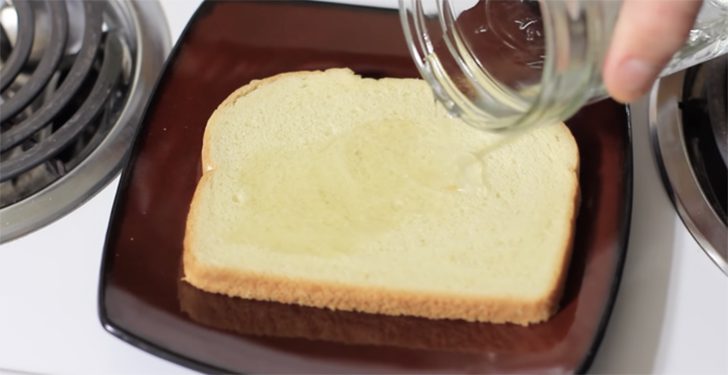
The acetic acid in vinegar neutralizes odors, while the bread absorbs the smell. Another method is to spray the inside of the bin with a vinegar and water solution, then wipe it clean. These tricks help keep your trash bin fresh and odor-free.
Vinegar as a Fabric Conditioner
Fabric conditioners are added to laundry to soften clothes, reduce static, and add fragrance. Vinegar can do the same job naturally. Add half a cup of white vinegar to the fabric softener compartment of your washing machine. The acetic acid in vinegar softens fabrics and reduces static cling.
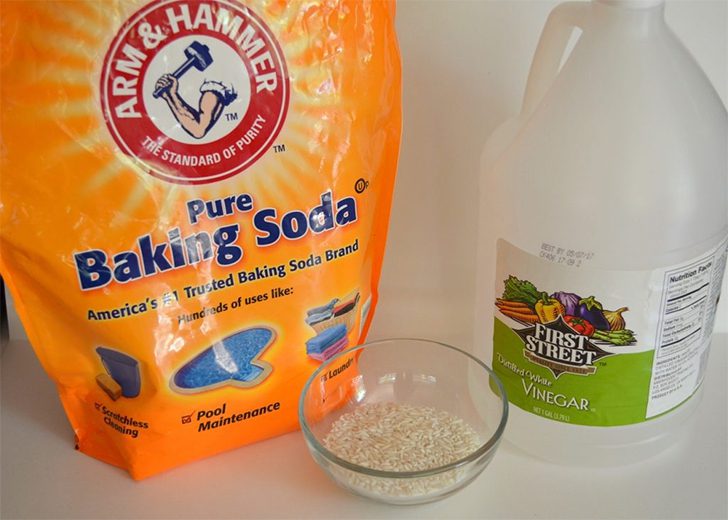
Despite its strong smell, vinegar will not leave your laundry smelling like it. Instead, it rinses out, leaving clothes fresh and clean. This simple switch to vinegar offers a natural, effective alternative to commercial fabric conditioners.
Sole Solution to Cracked Heels and Athlete’s Foot
Cracked heels are caused by dry skin and pressure on the feet. Athlete’s foot, a fungal infection, results in itching, redness, and cracked skin between the toes. A vinegar bath can be effective for both conditions. The acetic acid in vinegar has antifungal and skin-softening properties.
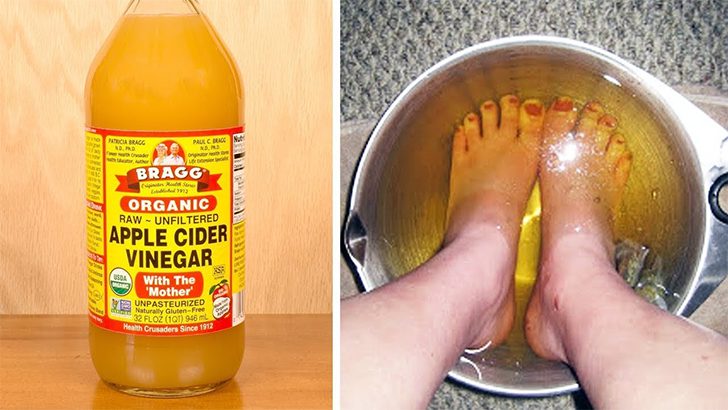
To use, mix one part vinegar with two parts warm water in a basin. Soak your feet for 15-20 minutes. This helps soothe cracked heels and combat the fungus causing athlete’s foot. Regular vinegar baths can improve foot health and provide relief from these common issues.
Rice Right: The Asian Secret and Vinegar Trick
Asians excel at cooking rice due to centuries of culinary tradition and techniques. Vinegar can enhance rice cooking by improving texture and flavor. To achieve perfect rice, rinse the grains until the water runs clear to remove excess starch. Add a teaspoon of vinegar to the cooking water.
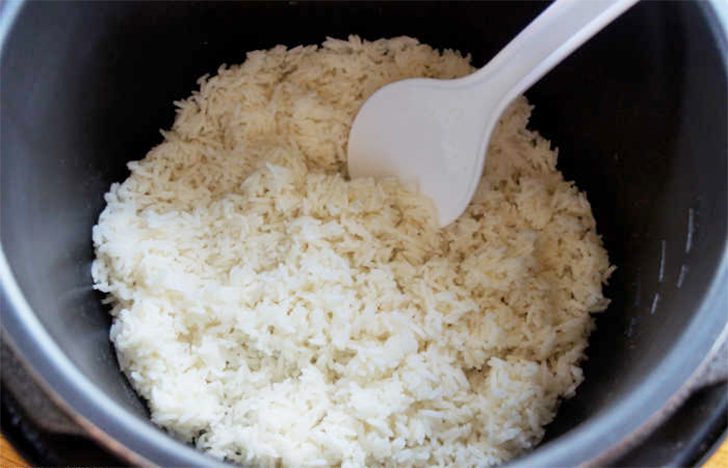
The acetic acid in vinegar helps keep rice grains separate and fluffy. Use the right water-to-rice ratio, typically 1.5 to 2 cups of water per cup of rice. Let the rice rest for a few minutes after cooking. This simple trick ensures delicious, perfectly cooked rice every time.
Clean Pans For Life
Removing oil, stains, or grease from pans can be challenging. Typical dishwashing soap often fails because grease can be stubborn and resistant to regular cleaning agents. Vinegar provides an effective solution.
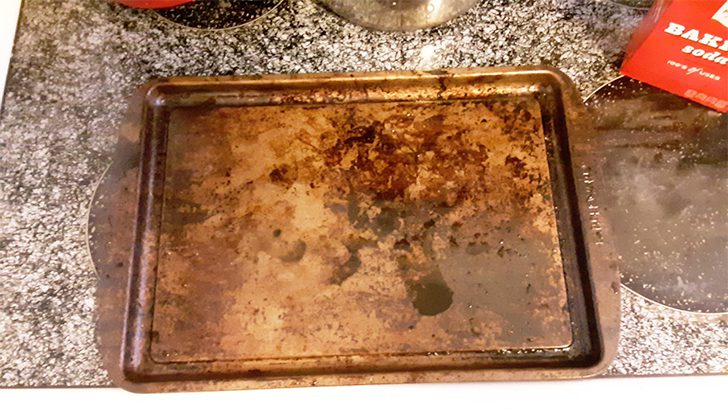
To clean greasy pans, sprinkle baking soda over the stains, then spray with white vinegar. The acetic acid in vinegar reacts with baking soda, creating a bubbling action that lifts grease and stains. Let it sit for a few minutes, then scrub with a sponge and rinse with hot water. This method ensures your pans are spotless and free of stubborn grease.
Shine On: Vinegar for Silver, Copper, and Brass
Silverware often discolors over time due to oxidation from exposure to air and moisture. To clean them using vinegar, soak silverware in a mixture of 1/2 cup white vinegar and 2 tablespoons baking soda for two to three hours. Rinse with cold water and dry with a soft cloth.
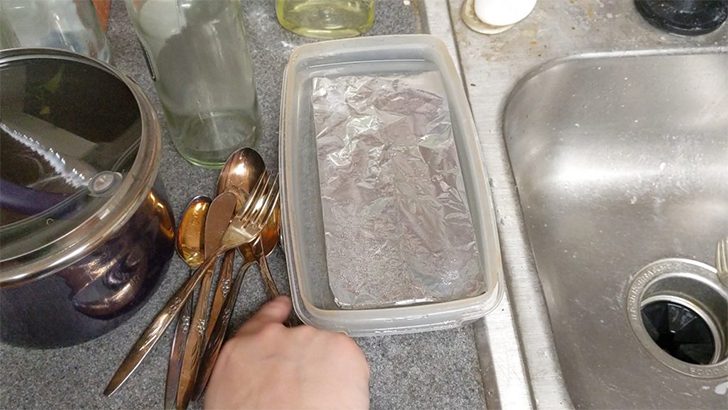
For copper and brass, create a paste using equal parts vinegar, salt, and flour. Apply the paste to the metal, let it sit for 30 minutes, then rinse with warm water and polish with a soft cloth.
Hand Hygiene: Vinegar for Disinfection
Yes, vinegar can disinfect hands. Hands can harbor a lot of bacteria and dirt from daily activities. To use vinegar, mix equal parts white vinegar and water in a spray bottle. Spray the solution on your hands and rub them together for at least 20 seconds.
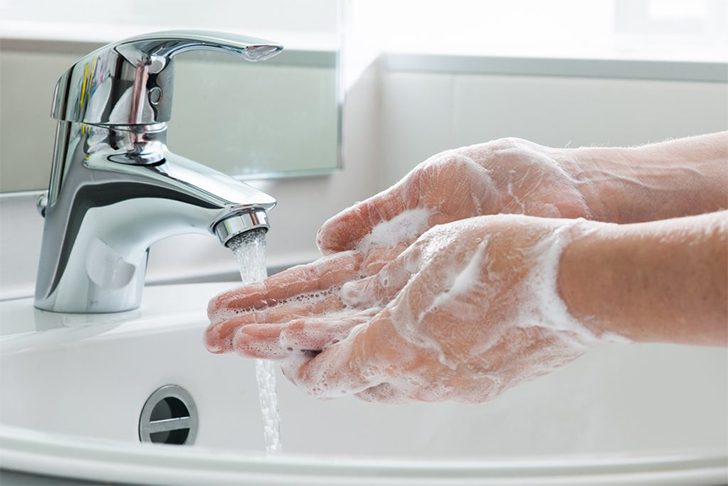
Rinse with water and dry. While vinegar’s acetic acid kills bacteria, it may leave a mild sour smell. To minimize this, rinse thoroughly and use a fragrant hand lotion afterward. This natural method helps keep your hands clean without harsh chemicals.
The Ultimate Toilet Tamer
Using strong chemicals for toilet bowls can be harmful to health and the environment. Vinegar is a safe and effective alternative. To clean your toilet with vinegar, pour a cup of white vinegar into the bowl and let it sit for at least 30 minutes.
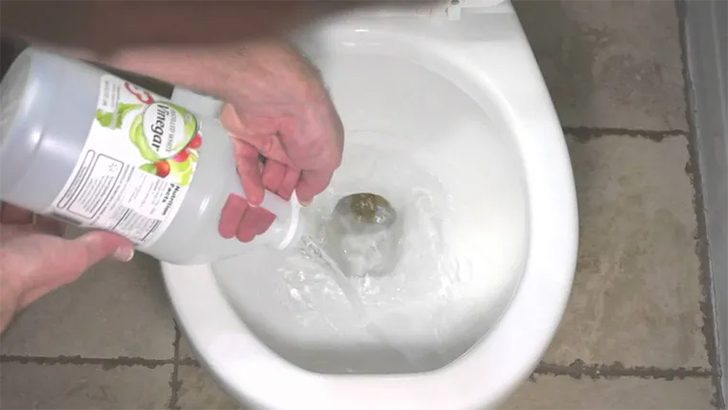
For tough stains, add baking soda and scrub with a toilet brush. The acetic acid in vinegar breaks down stains and kills bacteria, while baking soda enhances the cleaning power. This method ensures a clean, fresh toilet without the risks associated with harsh chemicals.
Clear View: Cleaning Glass Windows with Vinegar
Glass windows easily stain due to water spots, dust, and grime. Hard water leaves mineral deposits that create stubborn marks. To clean glass windows effectively, mix equal parts white vinegar and water with a few drops of dishwashing soap in a spray bottle.
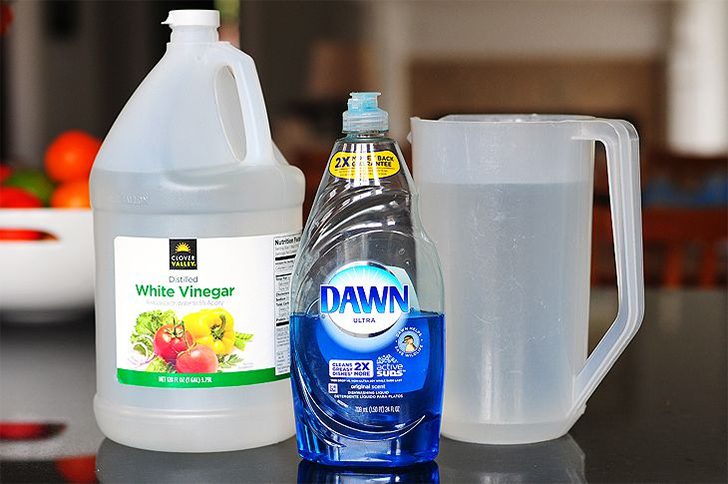
Spray the solution onto the glass and wipe with a microfiber cloth or a soft sponge. Avoid using a scrubber as it can scratch the glass. The acetic acid in vinegar dissolves mineral deposits and the dish soap cuts through grease, leaving your windows sparkling clean without damage.
Snip Smarter and Better
Scissors become dull over time due to regular use and cutting through various materials. They also get sticky from adhesive residue or cutting tapes and labels. Vinegar can help address both issues. To clean sticky scissors, soak a cloth in white vinegar and wipe the blades thoroughly.
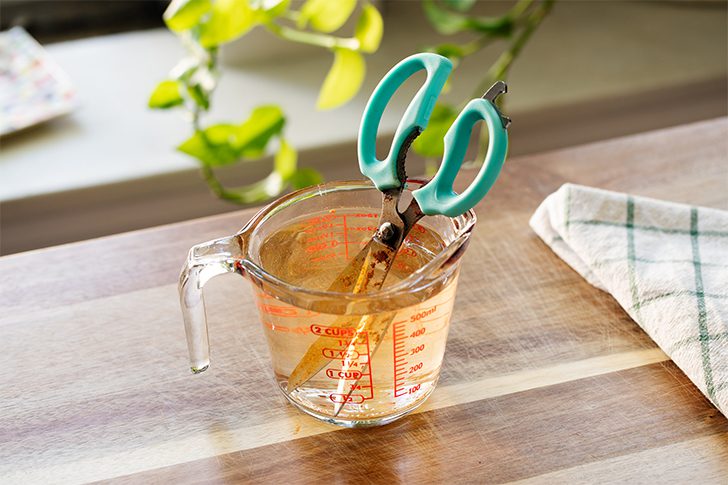
The acetic acid in vinegar dissolves the sticky residue. For sharpening, fold aluminum foil several times and cut through it with the scissors. This sharpens the blades effectively. Regular cleaning and occasional sharpening with vinegar and foil will keep your scissors in top condition.
Cool Solution to Cleaning Ice Cube Trays
Ice cube trays, made from plastic, metal, or silicone, work by holding water in compartments that freeze into ice cubes. Silicone trays are often preferred for their flexibility, making it easier to remove the ice. Cleaning these tools can be tricky due to lingering odors and stains.
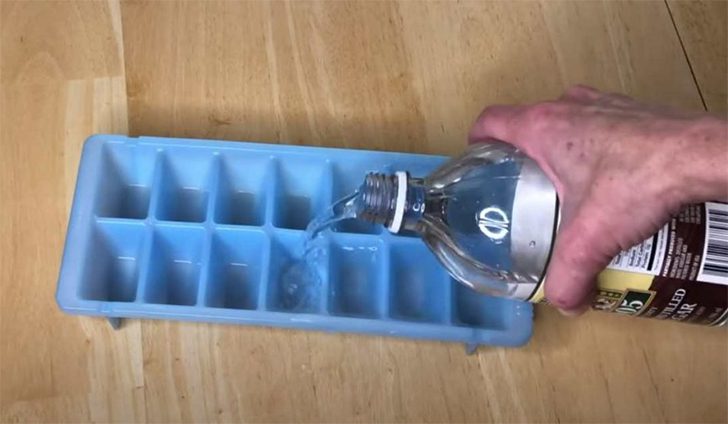
Vinegar is an excellent cleaning solution. Mix equal parts white vinegar and warm water, then soak the tray for 10-15 minutes. Scrub gently with a brush if needed, and rinse thoroughly. The acetic acid in vinegar removes stains and disinfects, leaving your ice cube trays fresh and clean.
Using Vinegar for Acid-Loving Plants
Yes, vinegar can be beneficial in the garden, especially for growing azaleas, rhododendrons, and gardenias. These plants thrive in acidic soil. To use vinegar as a fertilizer, mix one tablespoon of white vinegar with one gallon of water. Water your acid-loving plants with this solution once every few weeks.
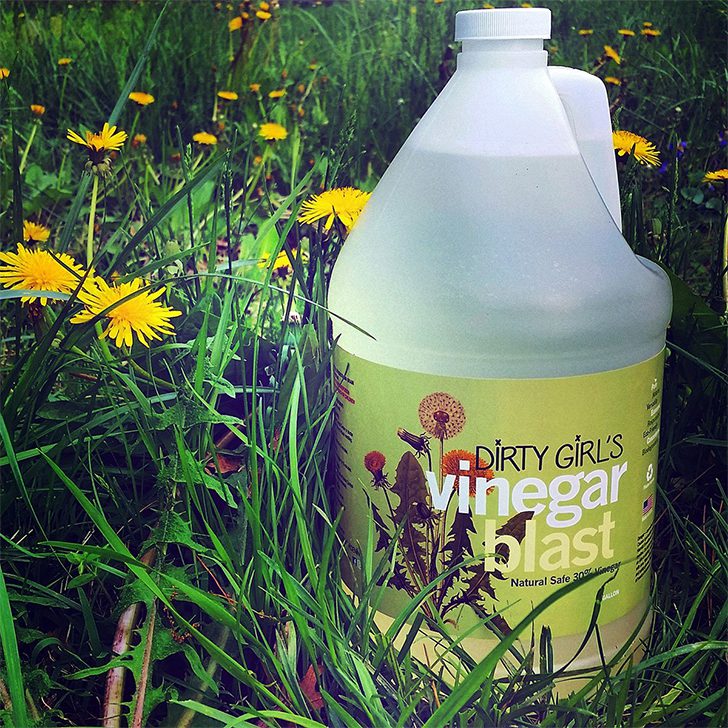
The acetic acid in vinegar lowers soil pH, creating an ideal environment for these plants. However, not all plants prefer acidic conditions; some thrive in higher pH soils. Always check the specific needs of your garden plants before using vinegar to adjust soil pH.
Ear Relief for Your Dog’s Itchy Ears
Dogs often scratch their ears due to infections, allergies, or ear mites. Vinegar can help alleviate this discomfort. The acetic acid in vinegar has antibacterial and antifungal properties. To use, mix equal parts white vinegar and water.
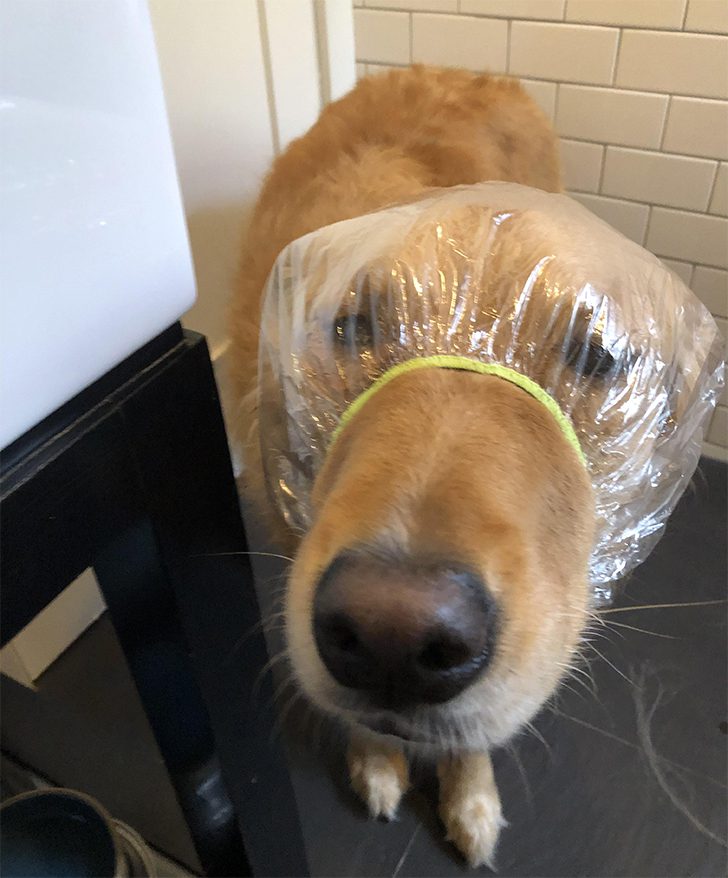
Soak a cotton ball in the solution and gently wipe the inside of your dog’s ear, avoiding the ear canal. This helps clean and disinfect the ear, reducing itching. Regular cleaning with this solution can help prevent ear problems. Always consult your vet before using home remedies on your pet.
Mat Magic: Cleaning Yoga Mats with Vinegar
Yoga mats can get dirty quickly due to sweat, oils, and dust from regular use. This buildup can lead to bacteria and odor. Vinegar is an excellent natural cleaner for yoga mats. Mix equal parts white vinegar and water in a spray bottle.
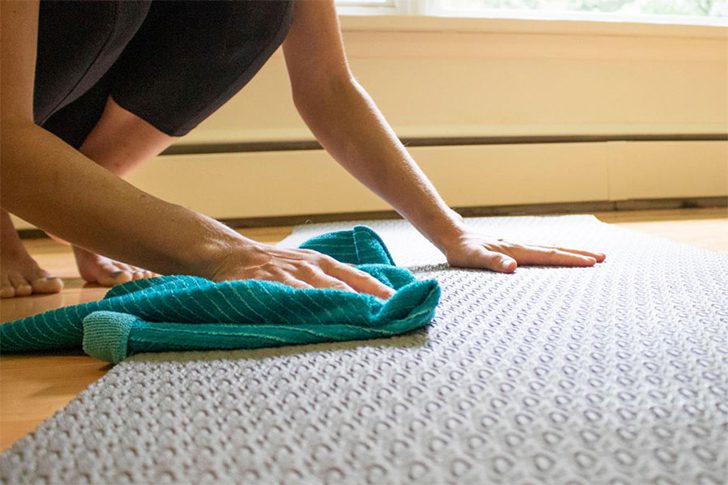
Spray the solution generously on the mat and wipe it down with a clean cloth. The acetic acid in vinegar disinfects and removes grime, keeping your mat fresh and hygienic. Regular cleaning with vinegar helps maintain a clean surface for your practice, ensuring better hygiene and longevity for your mat.
The Secret to Fresh and Clean Fruits
Eating fruits straight from the grocery or market is not advisable because they can carry pesticides, dirt, and bacteria. While fruits are healthy, experts advise washing them first to ensure safety. Vinegar can effectively clean fruits.
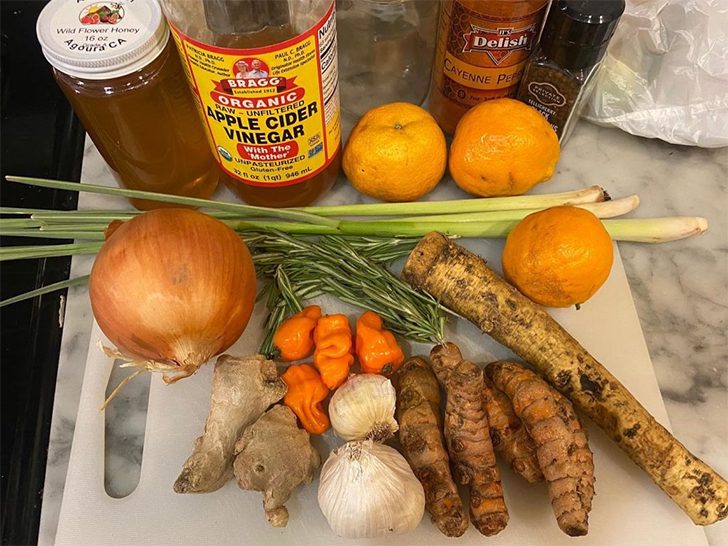
Mix one part white vinegar with three parts water in a bowl. Soak the fruits for about 5 minutes, then rinse thoroughly with fresh water. The acetic acid in vinegar helps remove harmful residues and bacteria, making your fruits safer to eat. This simple step ensures you enjoy the health benefits of fruits without unwanted contaminants.
Tender Touch By Marinating Meat with Vinegar
Vinegar is sour due to its acetic acid content, which gives it a sharp taste. This acid also makes vinegar an effective meat marinade. Marinating meats in vinegar helps break down muscle fibers and connective tissues, making them tender.

The acetic acid penetrates the meat, enhancing its texture and flavor without spoiling it. To marinate, combine vinegar with herbs, spices, and oil, then soak the meat for a few hours. This process tenderizes the meat while adding depth to its taste. Vinegar’s sourness transforms into a tenderizing agent, making it a valuable ingredient in cooking.
An Egg-cellent Hack for Perfect Boiled Eggs
Boiling eggs might seem easy, but getting easy-to-peel eggs can be tricky. Adding a tablespoon of vinegar to the boiling water helps the egg whites firm up, making the shells easier to remove. The acetic acid in vinegar breaks down some of the calcium carbonate in the eggshell.

Add a tablespoon of white vinegar to the water. Bring the water to a boil, then reduce the heat and let the eggs simmer for 9-12 minutes, depending on your desired doneness. Transfer the eggs to an ice bath immediately after boiling to cool them quickly.
Fresh Feet: Using Vinegar to Combat Shoe Odor
Feet can smell bad after some time in shoes due to the growth of bacteria and fungi, which thrive in warm, moist environments. The sweat from your feet creates the perfect conditions for these microorganisms to multiply, leading to unpleasant odors.
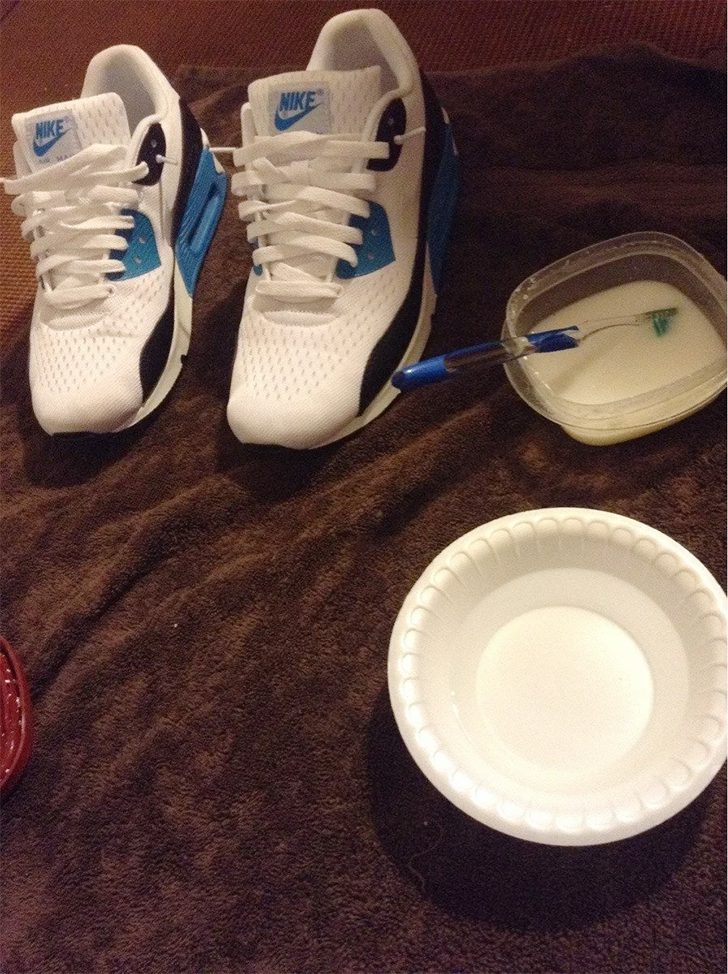
Vinegar, with its acetic acid content, can help combat this issue by killing bacteria and fungi and neutralizing odors. Mix equal parts white vinegar and water in a spray bottle. Spray the inside of your shoes lightly and let them air dry.
Frost-Free? Right Way to Protect Your Windshield
When a car is left in the open during snowy weather, snow can freeze on the windshield, making it hard to see. Vinegar can help prevent this. The acetic acid in vinegar lowers the freezing point of water, reducing frost formation.
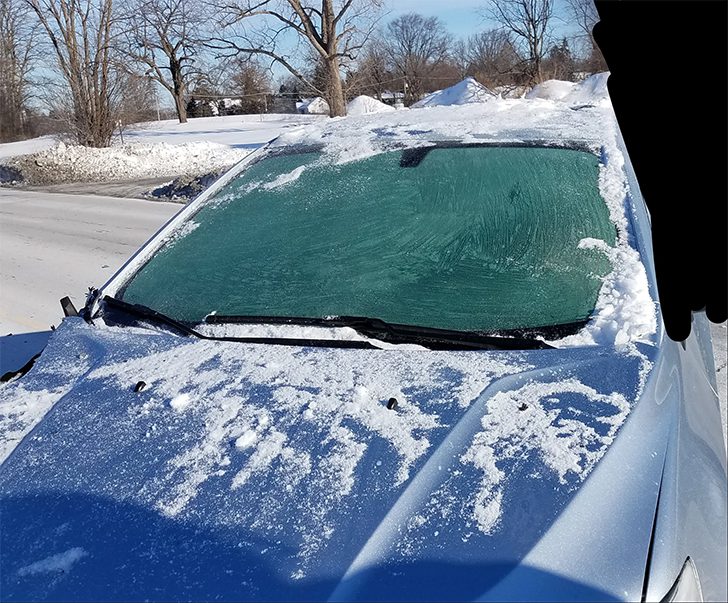
Mix three parts white vinegar with one part water in a spray bottle. Spray this solution on your windshield and windows before the frost sets in. This simple method creates a barrier against frost, saving you time and effort on cold mornings, and ensuring a clear and safe drive.
An Over Cleaner Sitting On Your Pantry
Ovens are essential for baking, roasting, and broiling but can be a pain to clean due to food spills and grease buildup. Vinegar can make this task easier. Remove the oven racks and soak them in a mixture of equal parts vinegar and hot water.
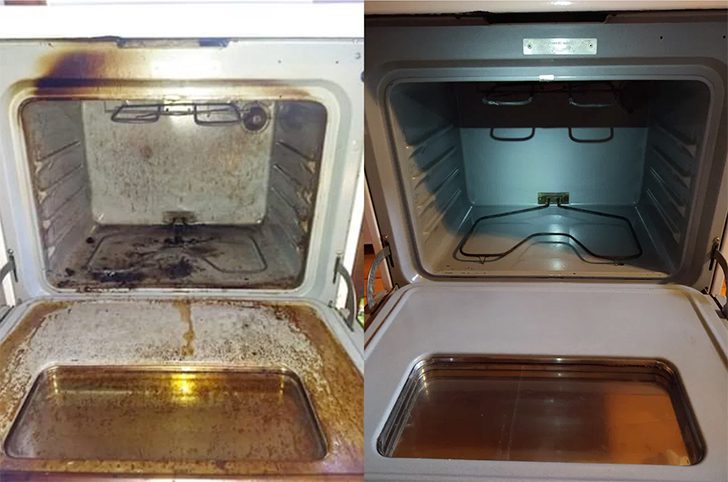
For the oven interior, spray a solution of equal parts vinegar and water, let it sit for 30 minutes, then wipe down with a damp cloth. For tough stains, sprinkle baking soda on the grime before spraying with vinegar. The acetic acid in vinegar and the abrasive action of baking soda break down grease.
Removing Sticker Residue
Stickers are cute but can leave ugly residues, posing a challenge for crafty repurposers and car owners alike. Vinegar offers an effective solution. To remove sticker residue, soak a cloth in white vinegar and place it over the sticky area for a few minutes.
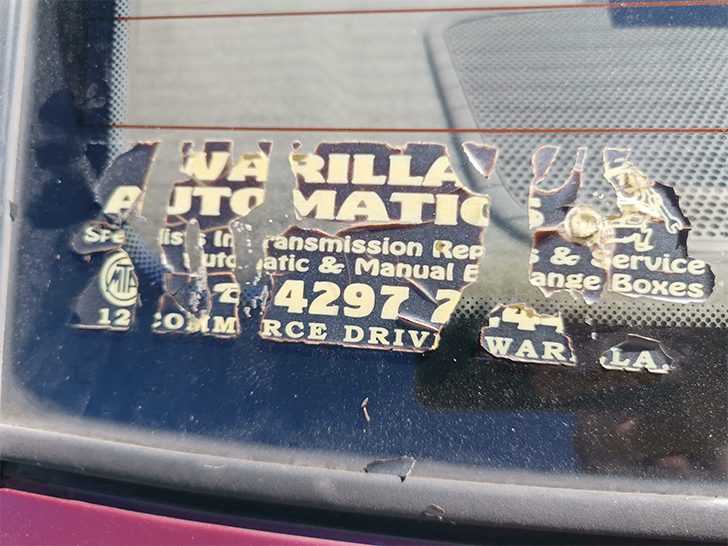
The acetic acid in vinegar breaks down the adhesive, making it easier to wipe away. After soaking, gently rub the residue with the cloth until it’s gone. For stubborn spots, repeat the process or use a plastic scraper. This method leaves jars, containers, and car surfaces clean and residue-free.
More Cheese Please!
Wrapping cheese in plastic wrap or cling film often traps moisture, leading to mold growth. Instead, try wrapping cheese in a cloth soaked in vinegar to prolong its shelf life. The acetic acid in vinegar creates an acidic environment that inhibits mold growth, keeping cheese fresh longer.
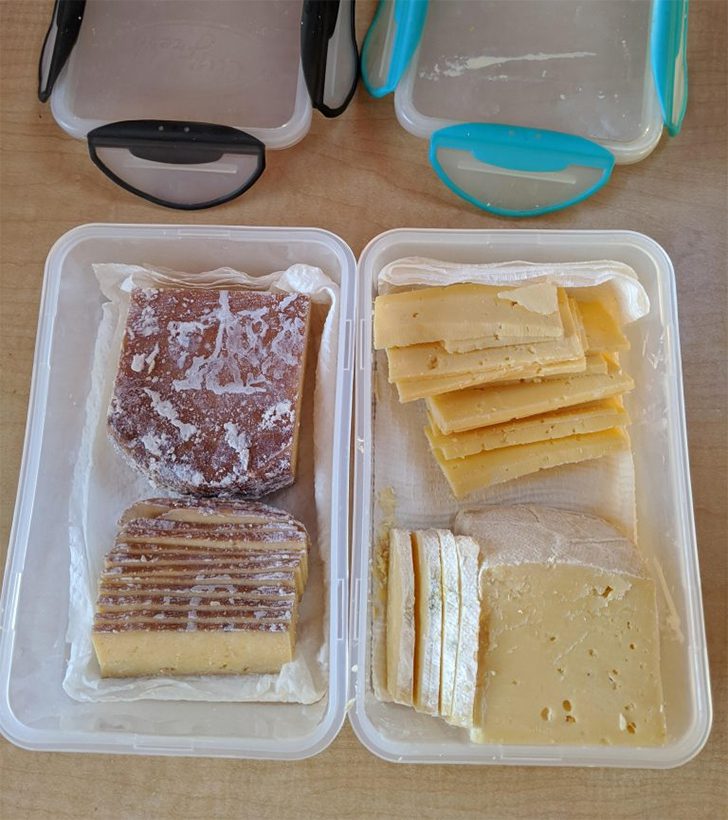
To do this, soak a clean cloth in a mixture of equal parts white vinegar and water, wring it out, and wrap the cheese. Store it in an airtight container in the refrigerator. This method helps maintain the cheese’s quality and prevents spoilage more effectively than plastic wrap.
You must be logged in to post a comment Login